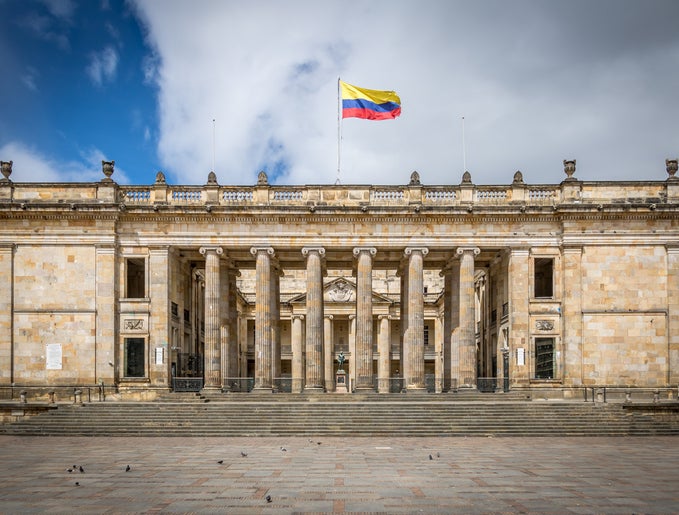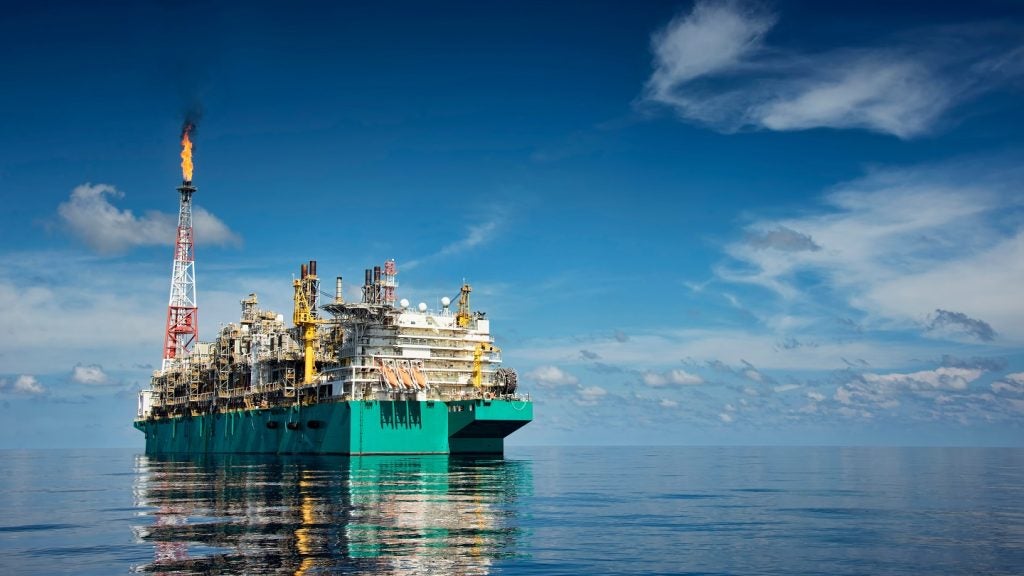
Decarbonisation and the shale gas revolution were already creating challenges for the African offshore oil and gas industry. Then the Covid-19 pandemic hit, plunging the sector into extraordinary circumstances.
According to the African Energy Chamber, pre-pandemic planned capital expenditure in 2020-2021 had been $90bn but has since fallen to just $60bn. Given the changing context, in its Africa Energy Outlook 2021 report, the Chamber says that the sector must adapt or risk not reaching its full potential.
Heidi Vella (HV): The Chamber’s report paints a stark picture for African offshore oil and gas, please talk us through the key takeaways…
Verner Ayukegba (VA): Presently, it’s an extremely tough market, with several factors making it harder. The global pandemic has significantly reduced demand for oil and gas; projects have been stopped to secure cash flows and investments are not being made, which is particularly difficult for offshore exploration.
Nigeria’s and Angola’s rig count has reduced notably. What we’re seeing is a maintaining of the status quo, as people hope to revisit their plans by the end of the year.
When this happens, we expect there will be more focus on projects that already have existing discoveries and existing infrastructure. We’ve seen this particularly in Angola, where Total and other majors are looking at mid-size to smaller-size new work. That’s the theme through 2020, and probably also 2021.
HV: The report notes that global contexts force African petroleum producers to adapt or become uncompetitive, what should they do?
VA: Oil and gas operates in a global space – Africa is competing with Mexico and the Middle East and more – and investors are now taking a second, third, fourth look at projects before they dive in. This means if we do still have uncertainties in places, like in Nigeria, especially for offshore due to the Petroleum Industry Bill, which has not yet passed into law, then there will be difficulties.
How well do you really know your competitors?
Access the most comprehensive Company Profiles on the market, powered by GlobalData. Save hours of research. Gain competitive edge.

Thank you!
Your download email will arrive shortly
Not ready to buy yet? Download a free sample
We are confident about the unique quality of our Company Profiles. However, we want you to make the most beneficial decision for your business, so we offer a free sample that you can download by submitting the below form
By GlobalDataWe’re saying they [governments] need to act quickly and even negotiate on a one-to-one basis, rather than have traditional licencing rounds, which have not necessarily yielded results in recent years.
In an oil environment of over $100 a barrel, international oil companies are willing to run around signing on bonuses and paying all sorts. However, that is no longer the case, so they need to try and adapt to attract people, by pushing increased data access, and making sure companies can gather more data and reach the next step of exploration. This is what needs to happen to shorten the cycle from prospects to first oil.
Additionally, it’s important to note that there is also the reality of the energy transition discourse; we only have 30-40 years of the necessary levels of oil consumption. This means that the amount of time to exploit oil reserves is reducing significantly.
HV: Is there a real risk that reserves could be left in the ground?
VA: Yes, there is that risk. Absolutely. If we see a faster push towards decarbonisation, due to improvements in technology and around consumption, or a change in the type of fuels being used, then there is a real risk that, in some cases, oil that would have been discovered will stay in the ground.
This will be because it will be extremely expensive to develop or it will be difficult to find the right kind of partners. Western banks have already started shying away from financing fossil fuel developments. So, the premium price of debt to invest to explore those resources can increase. Operators in the African oil and gas sector need to be very competent and respond to this.
HV: In the report, it notes that operations in Africa are generally more inefficient in terms of carbon emissions. Why is that?
VA: That is true. At the time, when many operations were started, conceptions around carbon emissions and what impact they might have were absent. And so, operators are now asking themselves, what level of investment is required to reduce those emissions?
In some cases, they are deciding to quit those fields, sell them, or sell them back to governments. Many of the majors are making emission reduction commitments to their shareholders. We have had discussions with many new private equity houses, but also independent investors, who are saying we have the technology to decarbonise or reduce emissions around some of these fields. There is also discussion around some present investment opportunities, such as gas to power solutions.
But, of course, that needs investments in the infrastructure to capture the gas and build power stations. It’s a huge opportunity, however. In places like Nigeria, there is significant demand for gas. Oil and gas projects are flaring gas, but many African countries need it.
HV: Could you imagine a mechanism, such as a carbon trading scheme, that might incentivise such investment in carbon emissions reduction offshore?
VA: What is important is that whatever is done in Africa it needs to be market responsive. So thinking less about putting a charge on carbon emissions but rather giving incentives, which the Chamber is looking at, to companies to develop infrastructure that helps to capture gas and push it to power.
That might mean tax incentives or reducing the take for governments, or government guarantees for the building of infrastructure. It also requires improving payments for power distribution and power storage; there are a whole host of things that can be done.
HV: In the report, the Chamber’s executive chairman, NJ Ayuk, refers to those that want to ‘demonise hardworking people’ in the industry. Can you elaborate?
VA: You would not deny there is a certain narrative against the oil industry, which puts it in a corner. I do appreciate global warming and also, historically, the not very nice things that have come out of the oil and gas industry – I certainly do condemn them.
The question is: if you look at a country like Nigeria and others, where 70% of government revenue comes from oil, if we kill the industry, what happens to those economies?
We at the Chamber would be the first to advocate for diversification of an economy. The question then becomes how best to diversify? Do you do it by stifling and killing the existing energy industry or by focusing on investing the revenues made from that industry into agriculture, education, health care, and whatnot? I would argue the latter is preferable.
HV: It’s tough times now, but when might the sector see a resurgence of sorts?
VA: When the vaccine fully comes in. Our prognosis is we’re probably going to see oil between mid $50s and $60s at the latter end of the year, and that’s when we will likely see concrete plans for more exploration work. So, realistically, we expect an offshore resurgence from current levels in 2022.
There is a lot of potential in Africa. Nigeria, with the Petroleum Bill expected later this year, will create significant opportunities. As will offshore the Gulf of Guinea, which has had huge success in the past but has one of the least dense allocations of exploration wells across the region. People that are looking for previous success will look at the data here again.
Mozambique is also extremely interesting. In the service space, we are looking at $50m-$100m flowing into the country in the next 5-10 years. Furthermore, Namibia and south of Angola are looking very interesting; the region has the same geology as has been seen offshore Brazil, which has been very prolific in the past. Senegal also presents exploration opportunities. Offshore Africa does have significant potential and there will be new exploration. I’m very much excited about what is to come.





